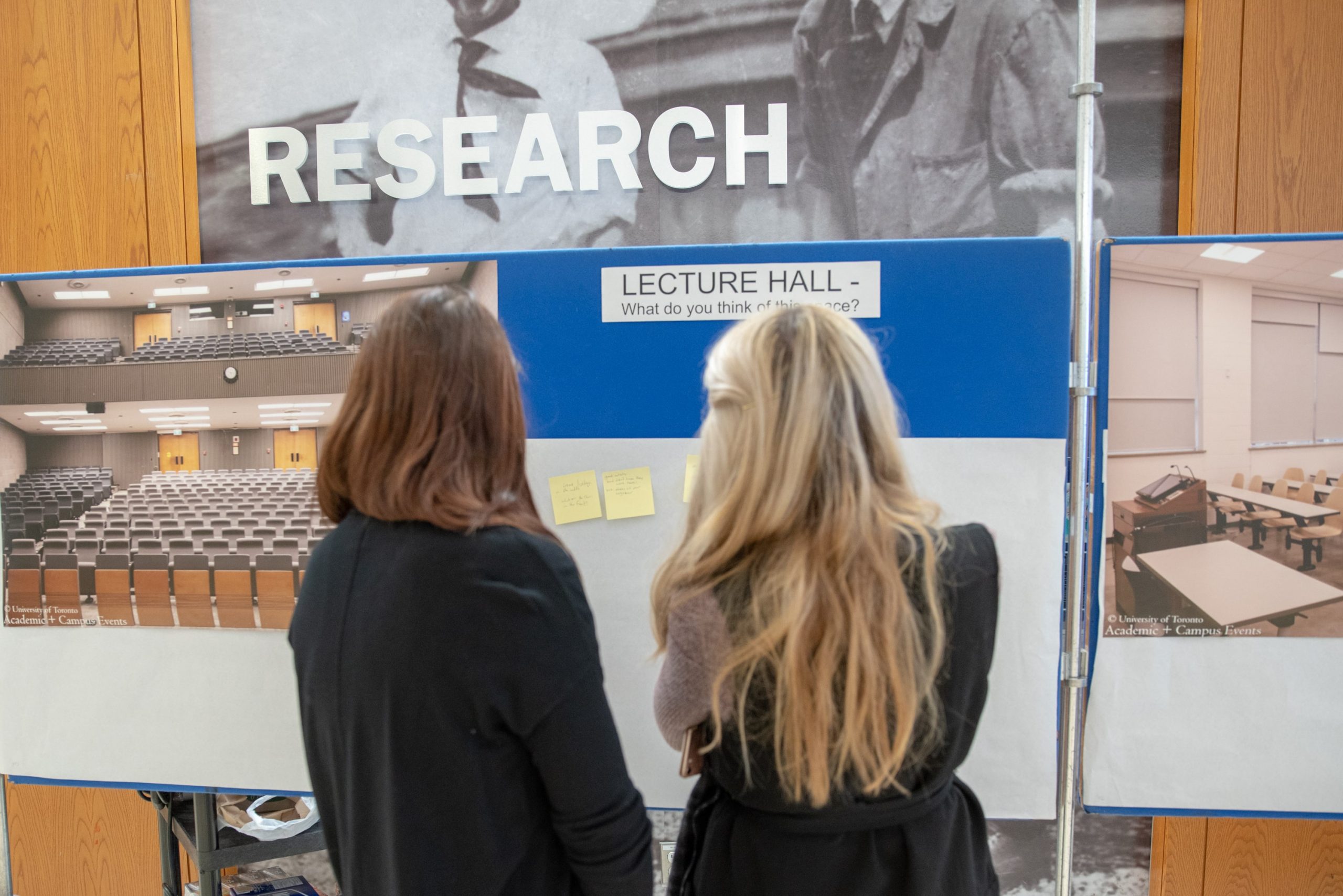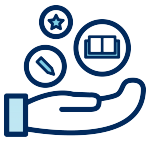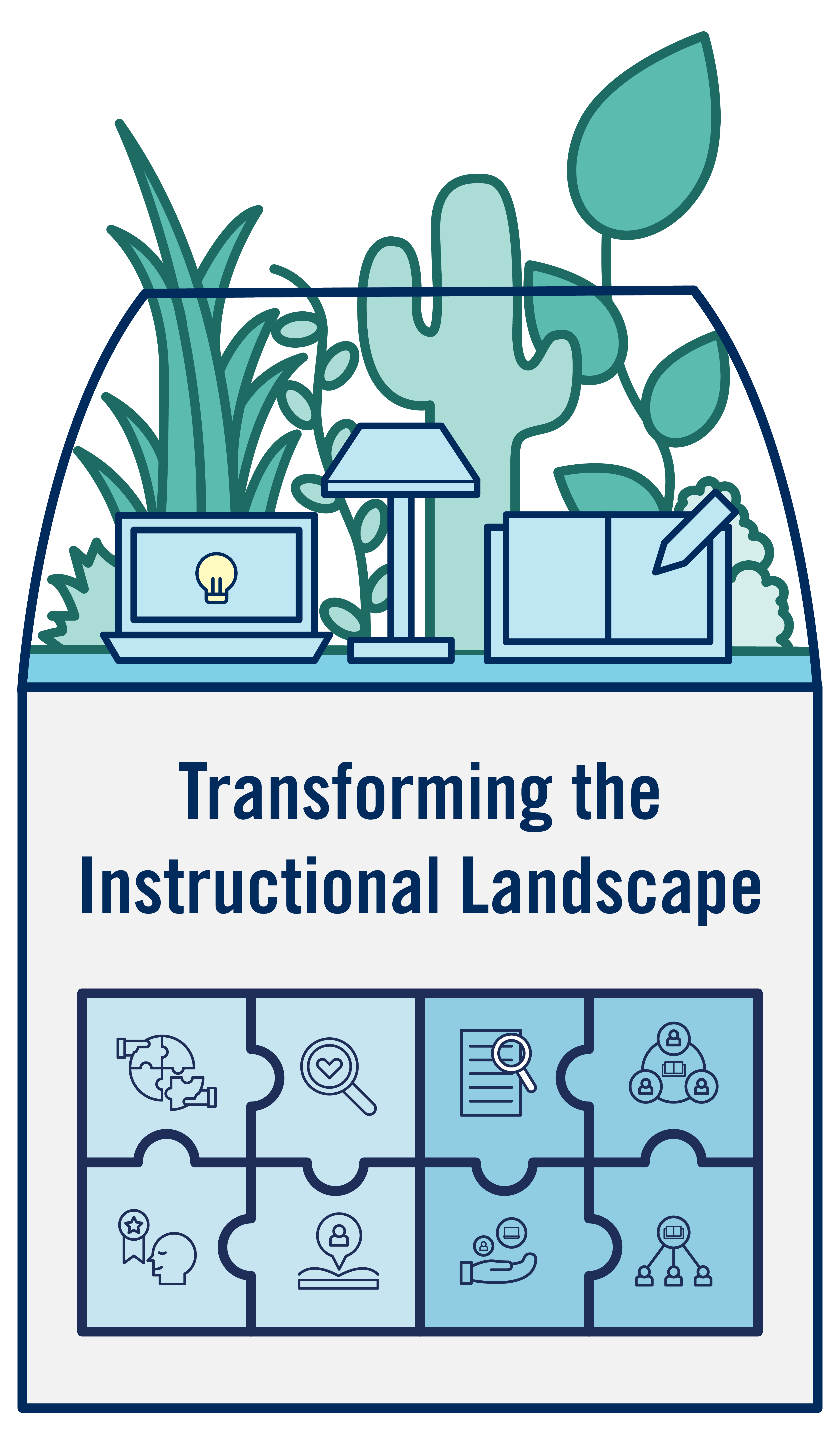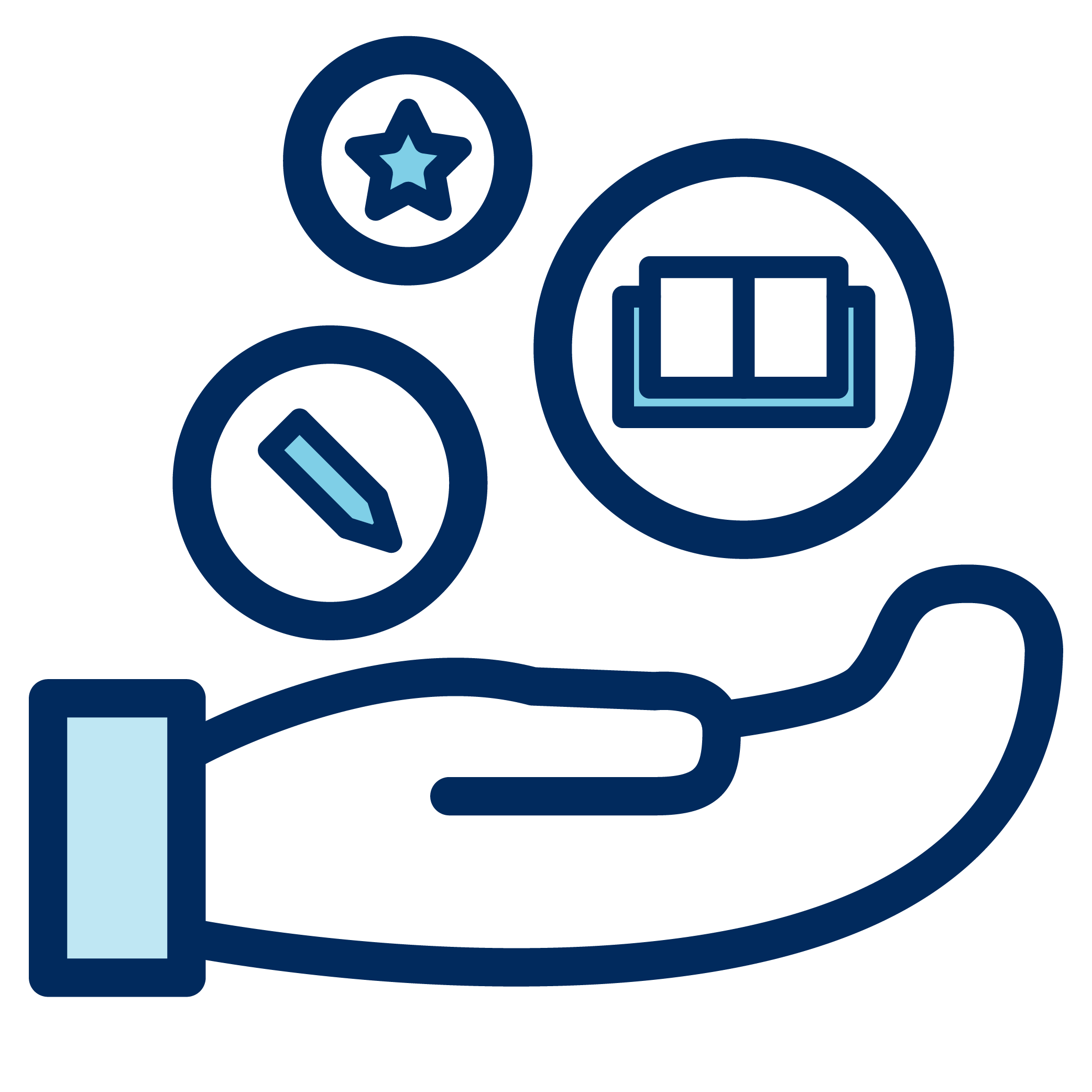Transforming the Instructional Landscape (TIL) is an initiative that seeks to draw on teaching and learning expertise from faculty, staff, and students across the university to inform teaching and learning best practices as they intersect with classroom space and technology. TIL’s focus is on the university’s academic spaces.
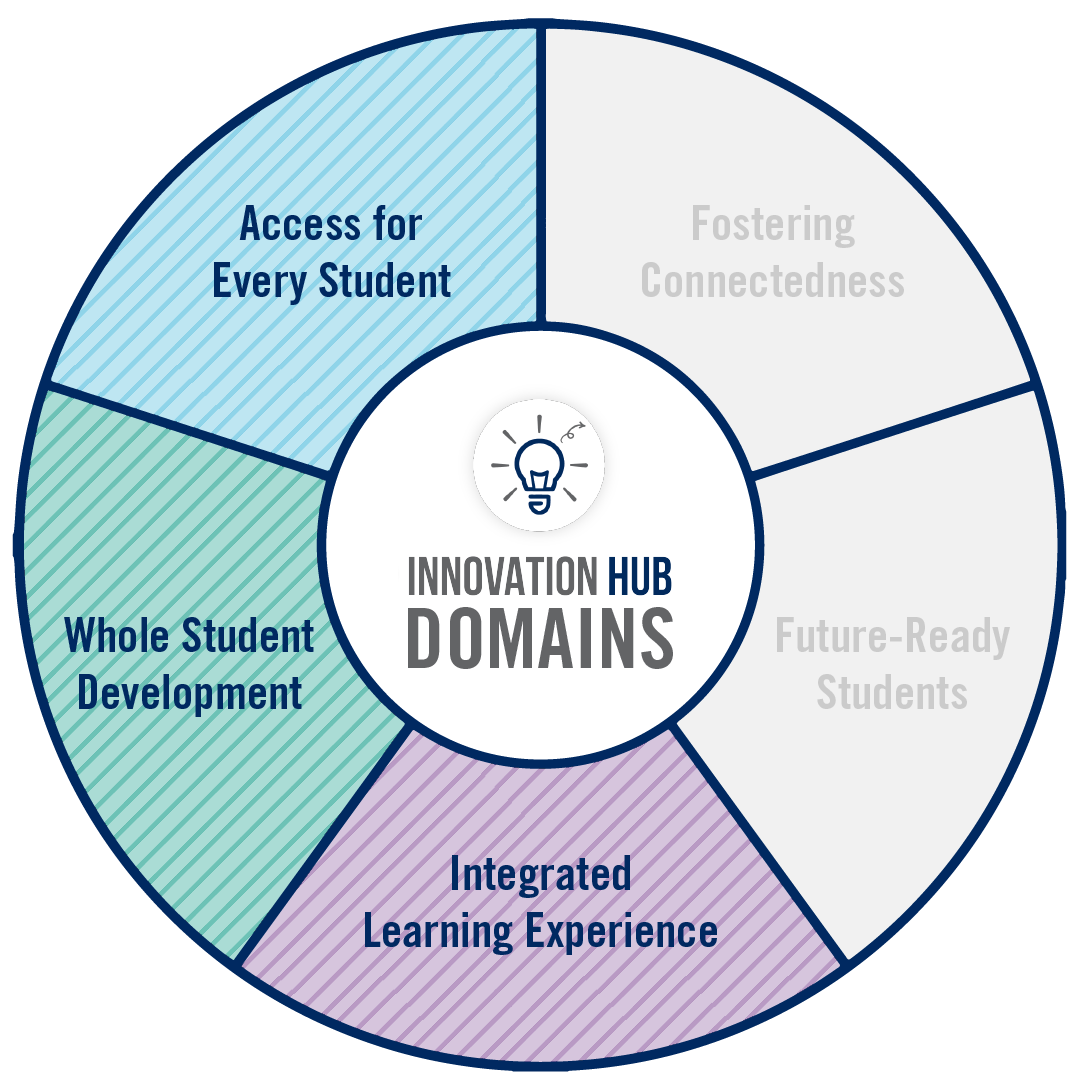
OUR FINDINGS:
Each year, TIL runs different research projects as our work grows and changes. Select the year to learn more about its focus and findings.
2022-2023
In 2022-2023, the TIL team at the Innovation Hub will continue to focus on the evolution of the Tech2U pilot program. Tech2U supports instructors by humanizing classroom technical support, ensuring that technology is working and achieves their goals. Tech2U provides direct, in-person technical support to instructors at the St. George campus through a team of full-time Technical Co-Pilots and Student Classroom Ambassadors. This year, the TIL team at the Innovation Hub will focus on opportunities to evaluate and improve Tech2U.
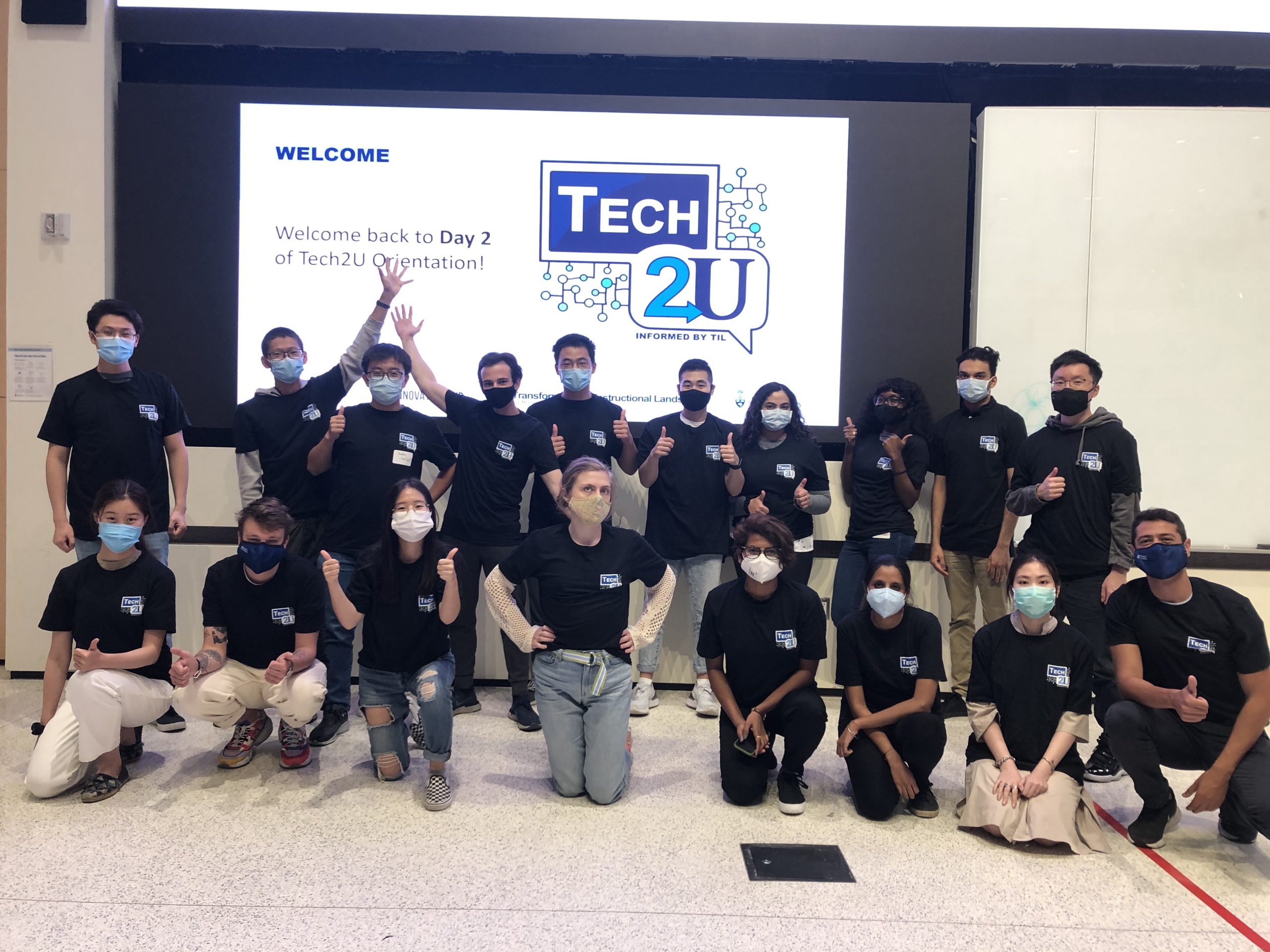
Summer 2022
In the summer of 2022, the TIL team at the Innovation Hub will continue to focus on the evolution of the Tech2U pilot program. Tech2U supports instructors by humanizing classroom technical support, ensuring that technology is working and achieves their goals. Tech2U provides direct, in-person technical support to instructors at the St. George campus through a team of full time Technical Co-Pilots and Student Classroom Ambassadors. In the summer of 2022, the TIL team at the Innovation Hub will focus on opportunities to evaluate and improve Tech2U as operational processes are refined.
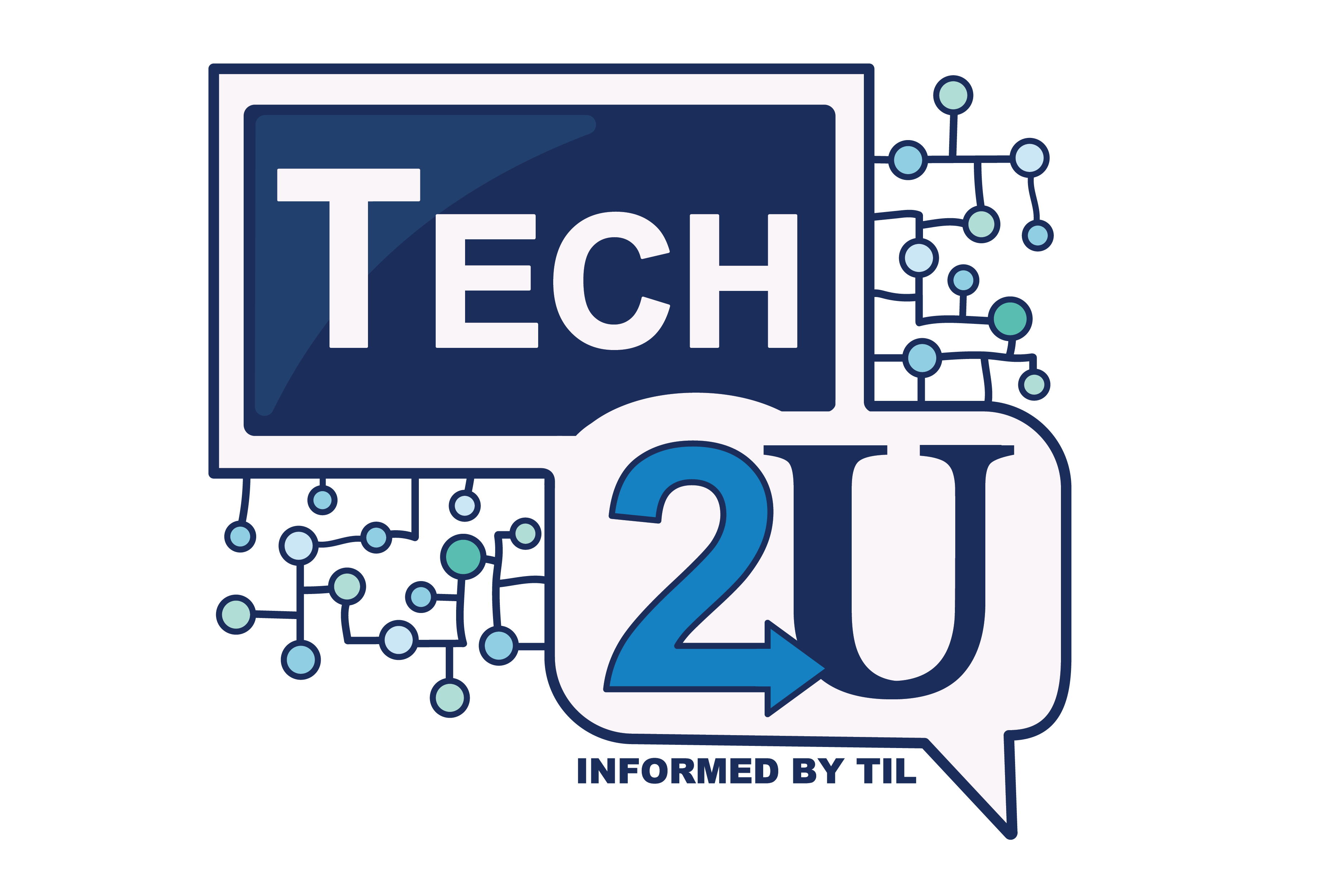
Summer 2021: How might personalized support with instructor support everyone in learning environments?
Over the summer, TIL continued to work on our remote learning pilot, where we examined what happens when instructors receive individual and personalized tech support while they teach remotely. From this work, we published our transcription case study, which outlines the benefits of supporting instructors to create transcripts for recorded lectures. This study is available in the links below.
The TIL team also began to work on new and emerging projects this summer as well. The team supported TIL’s website re-design project, and perhaps most excitingly, they supported the development and launch of Tech2U, a new pilot project developed in partnership between Learning Space Management (LSM) and the Innovation Hub. To learn more about Tech2U, check out the community repost on our blog.

2020-2021: How might we support instructors to teach courses in online spaces?
Due to the COVID-19 Pandemic, the integration of digital technology into teaching and learning was greatly accelerated. As a result, the TIL project accordingly shifted to focus on the emerging needs of students and instructors, and their experiences of these new and often uncomfortable instructional spaces. For the 2020-2021 year, TIL engaged stakeholders and community members in pilot initiatives which explored opportunities in remote learning, dual-delivery, and the multi-faceted challenges related to technology enhanced teaching and learning.
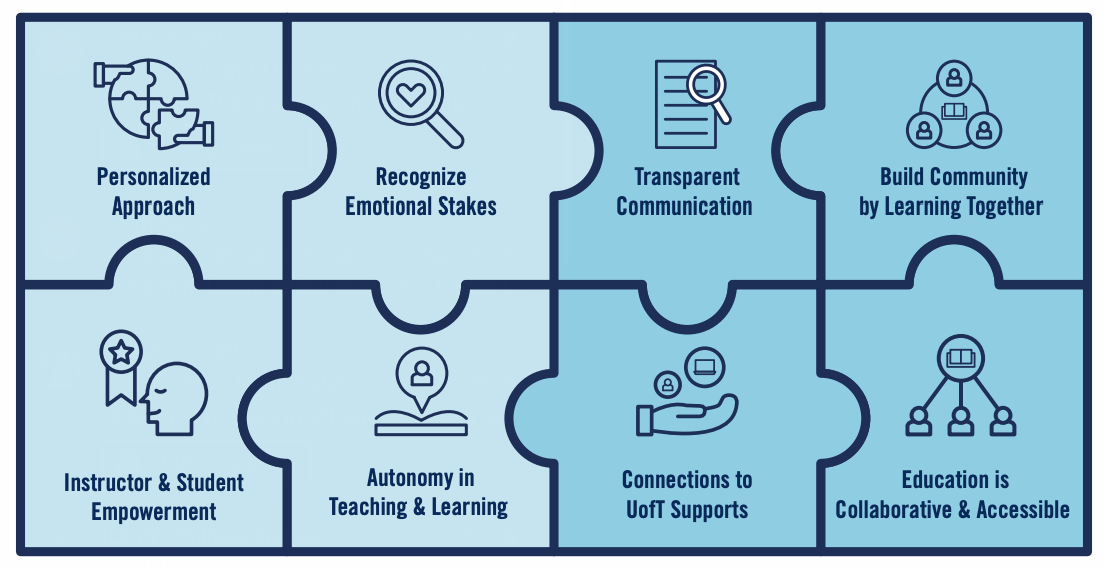
Read more about the project:
2019-2020: How can we continue to be trusted partners in class (re)design?
In the 2019-2020 year, TIL was focused on answering the question “How might we create a collaborative classroom-design process at UofT that meets the needs of all stakeholders?” To answer this question, TIL researchers employed a variety of research methodologies, including long-form interviews and journey-mapping sessions, to understand how the classroom re-design process works in a university setting, and how design researchers can help ensure that classroom design continues to reflect what students and instructors need from teaching and learning environments. From this work, TIL developed a series of recommendations on how design researchers can become trusted partners in the redesign process, as well as a series of design principles that should guide re-design projects.

2018-2019: How do students, instructors & staff use classrooms?
In its second year, TIL focused on engaging stakeholders across campus in LSM’s initiative to upgrade 174 classrooms in 23 universities across St. George Campus. To better understand what instructors and students wanted from this re-design process, TIL conducted a variety of design-thinking activities including long form interviews, classroom observations and feedback events. From this work TIL produced a series of Design Principles that provided guidelines for the core features of future classroom redesigns.
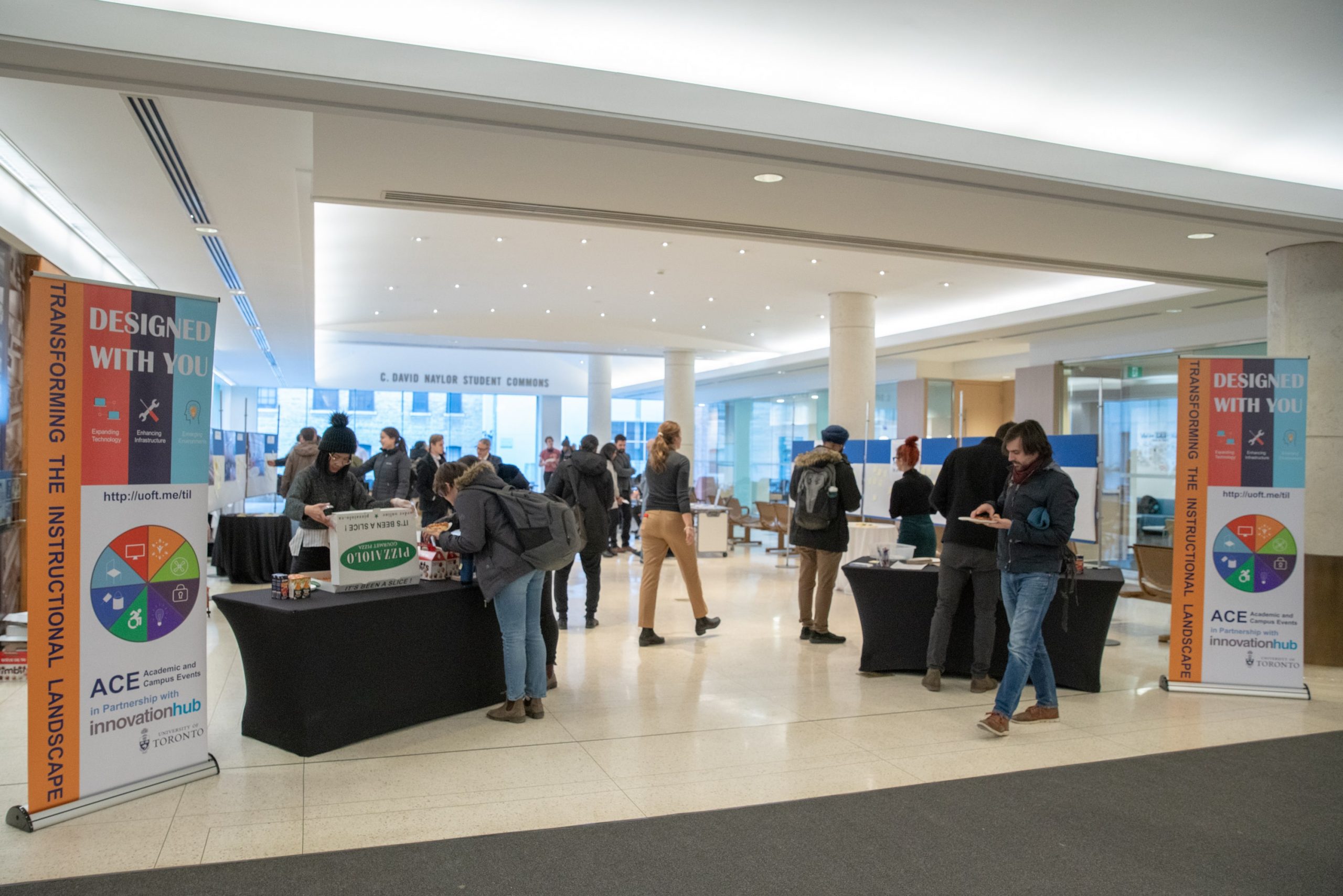
2017-2018: What do students need from classrooms?
TIL is a major classroom redesign initiative created by Academic and Campus Events (ACE), now called Learning Space Management (LSM). The Centre for Teaching Support and Innovation (CTSI) and the Innovation Hub are key partners in this initiative. In its initial year, TIL used human-centered methodologies to begin to understand the needs of students and instructors when it comes to learning spaces and their re-design. The focus of this first year of TIL was to understand how classroom spaces are used, and how spaces can be designed to facilitate learning. As part of this project, TIL developed various user personas to understand the unique needs and wants that users have when it comes to classroom spaces.
